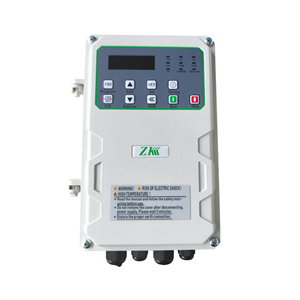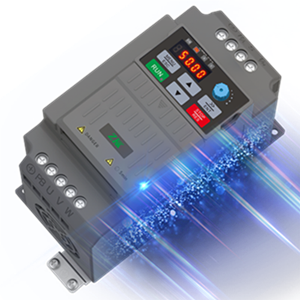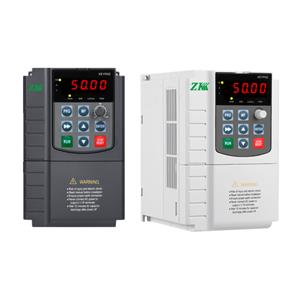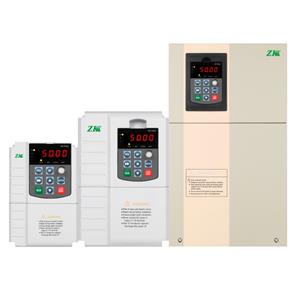Revolutionizing Cooling Efficiency: The Critical Role of Variable Frequency Inverters in Water-Cooling Systems
As industries worldwide prioritize energy conservation and operational precision,the variable frequency inverter(VFI) has emerged as a game-changer in water-cooling applications.From industrial chillers to data center cooling networks,this technology is redefining how systems manage thermal loads while slashing energy costs and carbon footprints.
Precision Control for Dynamic Cooling Demands
Modern water-cooling systems require adaptive solutions to handle fluctuating thermal demands.A variable frequency inverter dynamically adjusts the speed of pumps, compressors,and fans in real time,aligning energy consumption with actual cooling needs.For example,in semiconductor manufacturing facilities,where equipment generates variable heat loads during production cycles,VFI-driven pumps reduce flow rates by up to 60% during low-demand phases.This prevents the energy drain caused by fixed-speed systems operating at constant maximum capacity.
“The granular control offered by variable frequency inverters is transformative,”says Dr.Lena Müller,a thermal systems engineer at CoolTech Solutions.“In HVAC applications, we’ve observed a 35–50% reduction in pump energy use without compromising cooling performance.”
Energy Savings:From Megacities to Microchips
The International Energy Agency (IEA) estimates that water-cooling systems account for 20% of global industrial electricity consumption.By integrating variable frequency inverters,industries achieve measurable savings:
Data centers:Google’s AI-driven cooling farms in Finland reported a 28% drop in PUE (Power Usage Effectiveness) after retrofitting pumps with VFIs.
Plastic injection molding:A German manufacturer cut annual energy costs by €120,000 by synchronizing VFI-controlled chillers with production schedules.
Commercial buildings:Singapore’s Marina Bay complex uses VFIs in its district cooling network,saving 4.2 GWh of electricity yearly—equivalent to powering 900 homes.
Extending Equipment Lifespan
Beyond energy efficiency,variable frequency inverters mitigate mechanical stress.By eliminating abrupt starts and stops, VFIs reduce wear on motors and bearings.In wastewater treatment plants,where cooling pumps run 24/7,this technology has extended motor lifespans by 3–5 years,according to a 2023 study by the Water Environment Federation.
Smart Integration with IoT
The latest VFI models feature IoT connectivity, enabling predictive maintenance.Sensors monitor vibration,temperature, and power quality,alerting operators to potential failures before downtime occurs.At a Coca-Cola bottling plant in Texas, AI-powered variable frequency inverters detected bearing degradation in a glycol chiller pump,triggering maintenance that prevented a $500,000 production halt.
Sustainability Compliance
With regulations like the EU’s Ecodesign Directive enforcing stricter energy standards,VFIs help industries meet compliance targets.Their role in reducing harmonic distortion also improves power grid stability—a critical factor for solar/wind-powered facilities.
Case Study: VFI-Driven Transformation in Steel Manufacturing
A steel mill in South Korea faced soaring cooling costs due to outdated fixed-speed pumps.After installing variable frequency inverters across its 12 cooling towers, the facility achieved:
41% reduction in annual energy use (8.7 GWh saved)
18% lower maintenance costs
Real-time flow adjustments matching molten metal processing stages
“The ROI was just 14 months,”notes plant manager Park Ji-hoon.“The variable frequency inverters paid for themselves faster than any other upgrade in our decarbonization roadmap.”
The Future: VFIs and Green Cooling
As industries adopt ammonia and CO2-based refrigerants to phase out HFCs,variable frequency inverters will play a vital role in managing these next-gen systems’variable pressure demands.Research is also underway to integrate VFIs with hydrogen-cooled power generators,promising another frontier for energy optimization.
Why Choose VFI-Enhanced Water-Cooling Systems?
Energy savings:25–60% reduced electricity consumption
Carbon reduction:Aligns with Net Zero targets
Adaptability:Compatible with legacy and smart grid systems
Scalability:From compact server rooms to industrial megaprojects
In an era where efficient thermal management is synonymous with competitiveness,the variable frequency inverter stands as both a technological workhorse and a sustainability catalyst—proving that smarter cooling starts with intelligent motion control.




